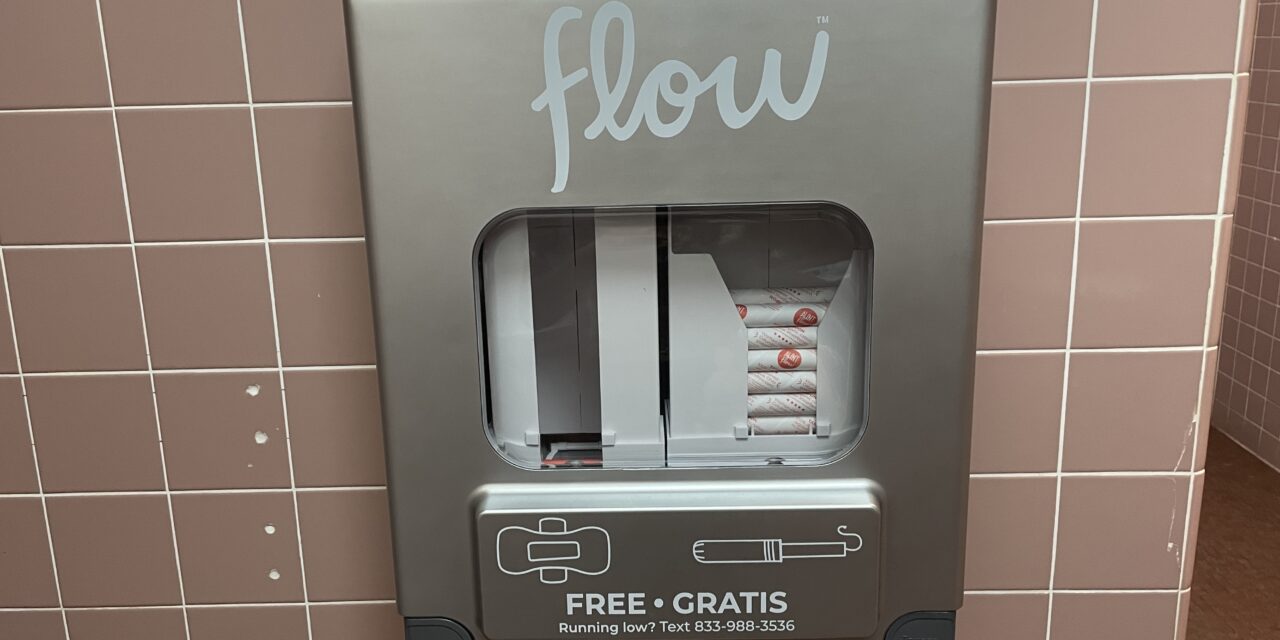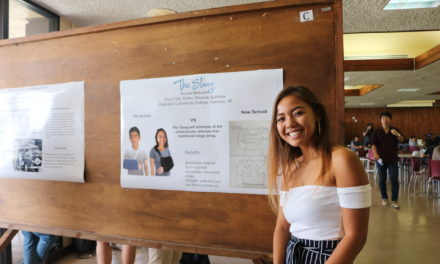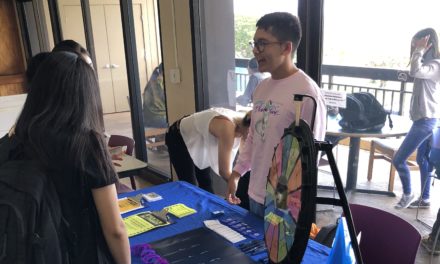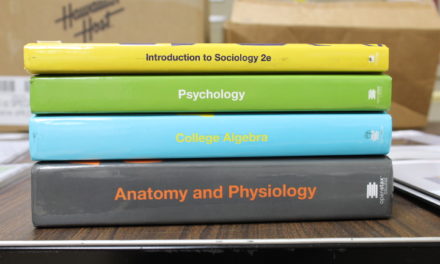Aunt Flow dispensers and sustainable menstrual products can be found in various bathrooms around campus free of charge. (Photo by Cameron Enomoto)
By Cameron Enomoto | Staff Writer
In the female bathrooms around campus, students and staff may have noticed menstrual product dispensers that provide pads and tampons for free.
The students involved in Phi Theta Kappa honor society, which is an honor society for two-year colleges, have to participate in the college project where they have an opportunity to collaborate with administrators on an area of the campus that can be improved. In 2017, the group of honor society students identified the lack of free menstrual products as an area where KCC was failing. There was nowhere on campus to get a free tampon or pad. According to Julie Rancilio, the PTK advisor, most campuses in the past have offered them in campus health centers. However, KCC does not have a health center.
“In the last five years, there have been a lot of issues related to equity when it comes to menstruation,” said Rancilio. “One of those of course is educational equity, and what we’re finding is that women and girls miss class or they’re late because they don’t have access to products they need. This really affects education, but it’s more important than ever because in the United States, nationally, more women go to college than men. More women also get their college degrees than men.”
Rancilio also said that as of Fall 2022, 64.5% of the student body at KCC identified as female. While the statistics for staff and faculty have not been recently updated, as of Fall 2020 55% of staff and faculty identified as female. Rancilio said that it is likely the staff and faculty numbers have not changed much in recent years.
After taking into account national data and research, the honor society students acknowledged that one of the key components in the college project needed to be campus-specific data. As a result, the students conducted a semester-long experiment to collect data by putting tampons and pads in four high-frequented restrooms on campus. A menstrual product station was set up in the cafeteria bathroom near 220 Grille, on the first floor of Lama library, and the Kopiko and ʻIliahi buildings. The PTK students were responsible for checking and refilling stations once a week as well as recording data in a Google doc.
“The products are disappearing because they’re being used,” said Rancilio. “There is not a black market for tampons and pads. People are not taking them to go sell them for money. We also got unsolicited emails from faculty and staff who said it was such a great idea.”
The previous chancellor, Louise Pagotto, agreed that providing free menstrual products was an area where KCC could improve. From there the PTK used funds to purchase more tampons and pads to distribute. At first, the PTK used brands like Tampax or Always because they were more affordable. Now, the PTK has achieved its goal of having cleaner and more sustainable products available by using Aunt Flow dispensers as well as pads and tampons.
However, when Covid hit, the PTK could no longer provide free products due to financial hardships.
The PTK society was able to obtain a grant from Student Congress for Fall 2022 through Summer 2023 to provide an entire year of products from Aunt Flow. Aunt Flow products are clean, meaning that there are no perfumes, dyes, or chemicals. Ingredients are all listed on the packaging which is biodegradable. Additionally, for every 10 products purchased from Aunt Flow, one was donated to an organization in need.
Currently, there are seven Aunt Flow dispensers on campus for students to utilize. The first four locations of the dispensers remained the same from the trial run of free distribution. There are now dispensers on the second floor of ʻIlima, Olapa, and the Mānele buildings. PTK students are planning to continue free distribution as long as possible and as needed. The effort by PTK students as well as Rancilio sparked a collaboration between the Maʻi Movement to change legislation to secure free menstrual products for all students on UH campuses.
The Maʻi Movement, an organization working to end period poverty in Hawaiʻi, has been working to educate the community about issues regarding menstrual products and stigma. The collaboration between Rancilio and one of the co-founders of the Maʻi Movement resulted in the bill HB481. The bill has passed its second reading and would require the University of Hawaiʻi to provide menstrual products free of charge to all students on any University of Hawaiʻi campus, including the community colleges.
“We always want to improve and do better for our students,” said Rancilio. “Though we didn’t want to sacrifice perfect for good because good was something that people still need. The PTK students will keep making their rounds to collect the data of products being used so that we can continue doing this in the foreseeable future.”
While there is no specific time for how long free products will be available on campus, the PTK intends to provide them as long as they have appropriate funds to continue purchasing Aunt Flow products.
Phi Theta Kappa honor society, which is an honor society for two-year colleges, has a chapter at KCC. It is part of a larger organization and have autonomy, though the goal of PTK is to ensure that students are engaging in activities that are similar to other chapters and related to the main organization. Developing leadership and service are some of the broader goals of PTK.






